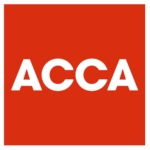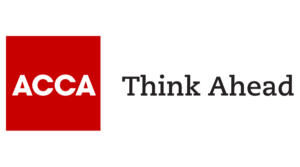ACCA TRAINING KUWAIT
Chart Your Success with Kuwait’s Premier ACCA Training Course!
By the end of the training you will,
- Prepare and analyze financial statements
- Use accounting information for decision-making
- Knowledge of auditing principles and techniques
- Understanding of tax laws and regulations
- Skills in managing financial resources
- Familiarity with legal aspects related to business operations and many more

ACCA Training in Kuwait
What is ACCA?
ACCA is a viable way to make big in the world of accounting, tax consulting, and auditing. ACCA certification is offered globally through 323 approved learning partners. Using the Ethics and Professional skill module along with 13 other exams, this certification let an aspirant gain mastery over the accountancy-related subject matter. The career options after ACCA are wide and impressive. Earners can explore the field of fund management, taxation, and various other top financial consulting fields. One can do independent practice as well. The salary, after ACCA, can go as high as $176,000.
A globally recognized organization, ACCA is here to polish the skills of an accounting professional and pave the path for better career opportunities. This organization offers multiple online diploma and degree courses related to accounting. These courses can be pursued along with ongoing education and help to hone inherited accounting skill-set. Infinity offers diligently designed ACCA training courses that any accounting professionals can join. Our ACCA training courses are infused with the latest and best-of-breed understanding of subject matter and a detailed explanation of exam objectives. Candidates taking up our ACCA training are known to have a better hold over exam content and a deeper understanding of covered topics. Our training is the ideal blend of conjectural and practical knowledge that creates real-world problem solvers.
If you’re looking for the ACCA training institute in Kuwait, look no further! We’ve been in the business for around 10 years and we’ve trained hundreds students and professionals. As an ACCA institute we teach you the skills, knowledge and techniques to excel in your chosen career and to succeed in a global workplace.
Why Choose to join our ACCA training in Kuwait?

Get a flying start to your business career with ACCA
They earn global renown for their excellence, and their demanding qualifications receive worldwide acknowledgment and respect. They have collaborated with over 7,400 Approved Employers and 80 accountancy firms globally, and link their members to thousands of job opportunities through the ACCA Careers Job Board..
Get a flying start to your business career with ACCA
ACCA Papers List
The highly sought-after Chartered Accountancy Qualification, ACCA, is challenging to achieve. To become a fully qualified ACCA member, students must complete three components: the ACCA Coursework Exams (13 papers), the Ethics and Professional Skills Module, and the Practical Experience Requirements (PER).
The ACCA coursework syllabus includes fourteen modules, encompassing ethics and professional skills. The thirteen coursework modules fall into two categories: the Fundamental level, which includes 9 modules or papers, and the Professional level, which includes 4 modules or papers. There are four exam sessions annually, and a student can take up to 8 different papers per year.
Fundamental Level Courses :
There are nine courses at the fundamental level. Without a relevant undergraduate degree or professional qualification (such as CA) to be eligible for the ACCA certification, students must pass all nine of the courses in this category. This level comprises two parts: the Knowledge Level (three papers) and the Skills Level (six papers). The fundamental level courses include labels ranging from F1 to F9.
Knowledge Level or Applied Knowledge Papers :
The Knowledge exams offer students a comprehensive introduction to finance and accounting, helping them understand accounting practices and techniques.
The three examinations under this level are :
F1 : Business and Technology (BT):
The structure, governance, and management of an organization, the impact and limitations of key environmental factors on business and accounting, the role of accountants within a business, specific functions of internal financial control and accounting, and individual and team management.
F2 : Management Accounting (MA):
The nature and purpose of management and cost accounting, the classification of costs and analysis of their behavior and purpose, the use of computer spreadsheets and business mathematics, standard costing and budgeting, cost accounting techniques, and various decision-making methods.
F3 : Financial Accounting (FA):
The nature and purpose of management and cost accounting, the classification of costs and analysis of their behavior and purpose, the use of computer spreadsheets and business mathematics, standard costing and budgeting, cost accounting techniques, and various decision-making methods.
Skills Level or Applied Skills Papers :
The Applied Skills modules build on the knowledge gained during the Knowledge level, enhancing understanding and developing robust, comprehensive, and practical finance skills necessary for functioning as a professional accountant in any sector or industry.
The six Applied Skills papers are:
F4 : Corporate and Business Law (LW):
The nature and purpose of management and cost accounting, the classification of costs and analysis of their behavior and purpose, the use of computer spreadsheets and business mathematics, standard costing and budgeting, cost accounting techniques, and various decision-making methods.
F5 : Performance Management (PM):
Cost accounting methods, budgeting and forecasting, performance measurement techniques, standard costing, and variance analysis.
F6 : Taxation (TX):
Cost accounting techniques, budgeting and forecasting, performance measurement methods, standard costing, and variance analysis.
F7 : Financial Reporting (FR):
Cost accounting methods, budgeting and forecasting, performance evaluation techniques, standard costing, and variance analysis.
F8 : Audit and Assurance (AA):
Cost accounting approaches, budgeting and forecasting, performance measurement methods, standard costing, and variance analysis.
F9 : Financial Management (FM):
Responsibilities of a financial manager, the financial management environment, investment appraisal and business valuation, management of capital costs and business financing, working capital management, and business risk evaluation.
Strategic Professional Level
The Strategic Professional exams, also known as the Professional Level, equip students for future leadership roles. At this level, students refine their technical, ethical, and professional skills and learn to tackle problems from various angles. The Strategic Professional Level includes six papers, with two being mandatory. Out of the four optional courses, students must select two specializations, allowing them to focus on areas that align with their career goals.
Compulsory Courses
P1 : Strategic Business Leader (SBL):
The role and function of governance in organizational management, the accountant's role in risk assessment, and the ethical framework guiding professional values and judgment.
P2 : Strategic Business Reporting (SBR):
The professional and ethical responsibilities of an accountant, the framework for financial reporting, preparation of financial statements for group entities, analysis of potential financial reporting issues, implications of changes in accounting regulations, and assessment of current developments.
Electives or Optional Courses
(Students must choose two of the four courses).
P3 : Advanced Financial Management (AFM):
Stakeholder management, advanced investment appraisal, corporate restructuring, acquisitions and mergers, advanced risk management strategies, and emerging issues in finance.
P4 : Advanced Performance Management (APM):
Analysis of an organization's strategic development and performance, assessment of external factors, design and evaluation of performance systems, and recent global developments.
P5 : Advanced Taxation (ATX):
Tax system, tax planning strategies, and communication.
P6 : Advanced Audit and Assurance (AAA):
Conceptual and regulatory framework for auditing, preparation of financial statements, and techniques for analysis and interpretation.
Ethics and Professional Skills Module :
All ACCA students must complete the Ethics and Professional Skills module, designed to enhance a variety of skills that improve graduates’ employability. Through case studies and exposure to real-world business scenarios, this module aims to increase the credibility of ACCA graduates.
The 13 ACCA papers and the Ethics and Professional Skills module must be completed in a specific sequence. Students should first attempt the Applied Knowledge exams, then proceed to the Applied Skills exams, and finally take the Strategic Professional exams. The Ethics and Professional Skills module can be undertaken at any time after completing the Applied Knowledge exams.
About Exemptions
Based on your existing qualifications, ACCA may grant exemptions in the following areas:
- The Foundation level qualifications
- the nine Applied Knowledge and Applied Skills exams of the ACCA Qualification
No exemptions are awarded for the Strategic Professional exams of the ACCA Qualification, or based on work experience for the ACCA Qualification. If you have obtained additional qualifications after registering as a student, you might be eligible for further exemptions. You can apply for these exemptions at any time. Use the ACCA exemptions calculator to find out which exemptions you are eligible for.
